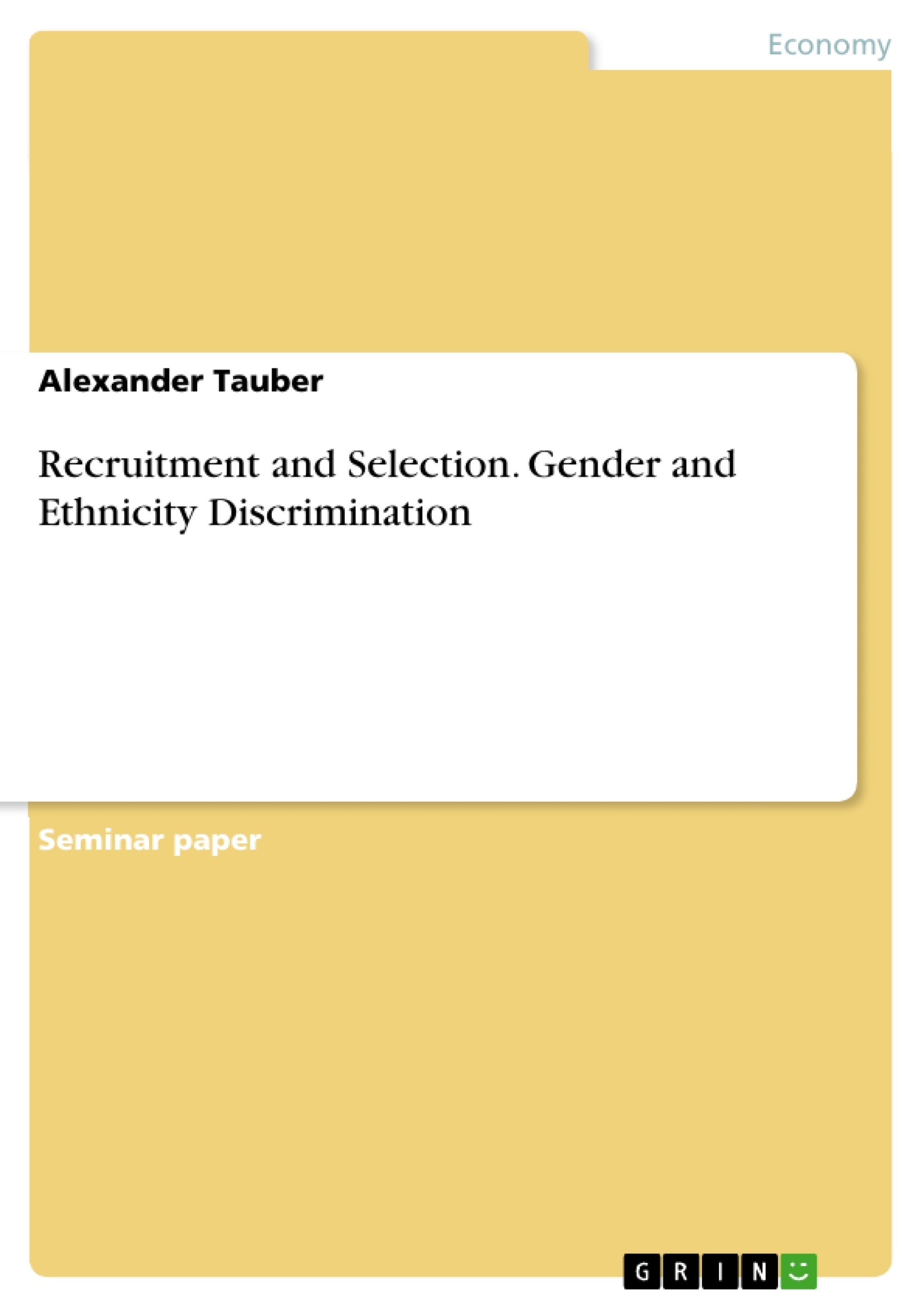In the following paper we define the meaning of recruiting and selection in an international context. By showing statistics of some international studies, we try to demonstrate the steady grow of international assignments. Additionally we will show in our study, that recruiting and selecting new individuals for international assignments is a complex task and the company has to focus on a variety of factors. Recruiting and Selection is one of the most important issues in human resource management. It means that the department has to find the most appropriate candidate for the vacancy. The employees, who work in a different country than their home country, are called "international managers" or "expatriates". By application, job interviews, trial work, and so on the staff department tries to select the right person for the job.
With the rapid development of the globalization, international managers gained more and more importance and the human resource management became more complex. To manage the recruiting and selection of expatriates, the international human resource management has to focus on different kind of things: the international taxation, the selection and training of international managers, dealing with different international governments all over the world, international relocation, and so on.
Inhaltsverzeichnis (Table of Contents)
- Introduction
- Statistics
- Criteria for Recruitment
- Criteria for Selection
- Main criteria of selection
- Evaluation of criteria
- Gender and Ethnicity discrimination in recruitment
- Discrimination in higher positions
- Discrimination of Women and the position of a Women in a Company
- Regulations for discrimination
- Pros with having a mixed culture workgroup
- The myth of the international Manager
- The two definitions of the 'international manager'
- Critique of the ‘international manager'
- Future implications on international recruitment and selection programs
- Final remarks on the 'international manager'
- Conclusion
Zielsetzung und Themenschwerpunkte (Objectives and Key Themes)
This paper explores the crucial aspect of recruitment and selection within international human resources management. It delves into the complexities of identifying, attracting, and choosing the best candidates for international positions, highlighting the importance of navigating cultural differences, understanding global markets, and ensuring ethical practices. The paper aims to provide a comprehensive overview of the challenges and strategies involved in international recruitment and selection.
- The growing importance of international managers in the globalized world
- The process of recruitment and selection in an international context
- The significance of cultural factors and international regulations in recruitment and selection
- The challenges and considerations related to gender and ethnicity discrimination in recruitment
- The evolving role of the international manager and its implications for recruitment and selection practices
Zusammenfassung der Kapitel (Chapter Summaries)
The introduction establishes the central theme of recruitment and selection in international human resource management, highlighting the increasing importance of international managers and the complexities involved in their recruitment and selection. It discusses the potential consequences of making a poor selection, underscoring the need for effective and efficient processes. The chapter also provides a brief overview of the various factors involved in international human resource management, including international taxation, international relocation, and managing cultural differences.
The statistics chapter provides empirical evidence of the increasing global mobility of skilled workers, illustrating the growing demand for international assignments. Data from the OECD and other sources highlight the significant number of individuals working abroad, particularly those with higher levels of education.
The chapter on criteria for recruitment emphasizes the need for a comprehensive understanding of the requirements for each vacant position. This involves carefully defining job descriptions and person specifications to attract candidates with the right skills and qualifications.
The chapter on criteria for selection focuses on the evaluation and selection process, outlining the importance of fairness, effectiveness, and efficiency in choosing the best candidates. It explores the need for careful consideration of various criteria and emphasizes the need to adhere to guidelines and best practices to minimize the risk of expatriate failure.
The chapter on gender and ethnicity discrimination in recruitment addresses the crucial issue of fair and equitable practices in international recruitment. It delves into the challenges of discrimination in higher positions and the need for inclusive policies and practices. This chapter examines the role of regulations in preventing discrimination and highlights the benefits of diversity in the workplace.
Schlüsselwörter (Keywords)
The main keywords of the text are international human resource management, recruitment, selection, international manager, expatriate, globalization, cultural differences, discrimination, diversity, and ethics.
Frequently Asked Questions
What are "expatriates" or "international managers"?
Expatriates are employees who work in a country other than their home country, often on international assignments for global companies.
What are the main challenges in international recruitment?
Challenges include navigating international taxation, cultural differences, relocation logistics, and ensuring fairness to avoid gender and ethnicity discrimination.
How does discrimination affect international selection?
The paper examines how gender and ethnicity discrimination can occur in higher positions and the importance of inclusive policies to ensure a diverse and effective workforce.
What criteria are used to select international managers?
Selection criteria include professional skills, cultural adaptability, language proficiency, and psychological readiness for a foreign environment.
Why is a mixed culture workgroup beneficial?
Diversity in workgroups brings different perspectives, fosters innovation, and helps companies better understand global markets.
- Citar trabajo
- Alexander Tauber (Autor), 2016, Recruitment and Selection. Gender and Ethnicity Discrimination, Múnich, GRIN Verlag, https://www.grin.com/document/505805



